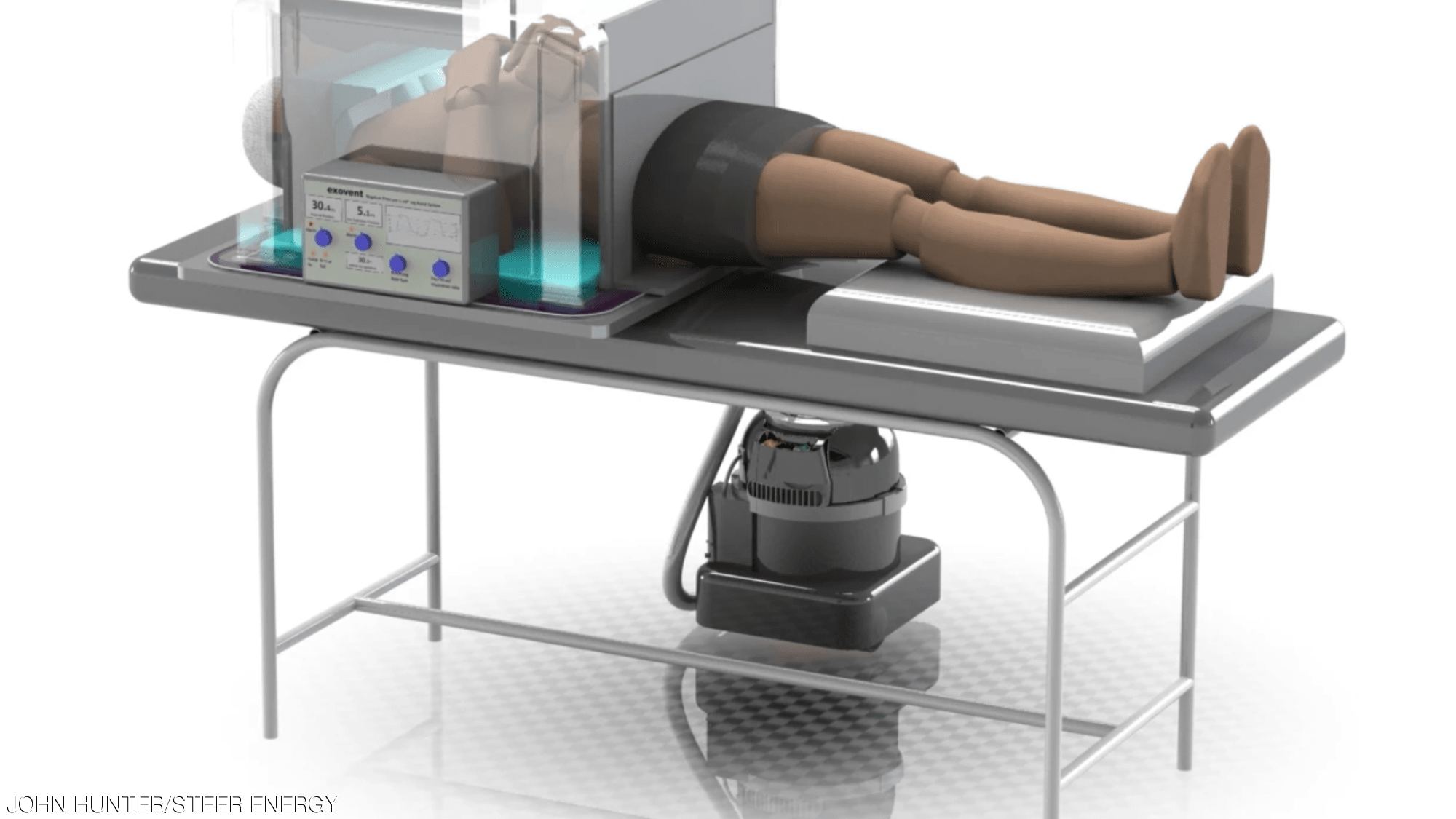
British scientists are working on developing a modern version of the “negative pressure” breathing apparatus, which was used in the last century, known as the “iron lung“, to alleviate the shortfall in the level of artificial respirators in many countries of the world.
And recently, the countries of the world became in a race against time to secure respirators It is needed by patients with the emerging coronavirus, which causes breathing difficulties in the sick person.
And if this scientific effort is successful, it will allow medicine to help those suffering from breathing difficulties, at a lower cost, and without waiting for artificial respiration.
The world entered into a crisis due to the complications that surround the use of artificial respirators, as they are expensive and require extensive training of medical personnel, according to the “New Atlas”website specialized in technical and scientific news.
To understand the difference between the artificial respiration system and the iron lung, it is worth noting that the first that we currently use is known as the intermittent positive pressure ventilation system, and it works by pumping oxygen directly into the lung, so that it helps the patient to breathe, but what is known as the iron lung, meaning the breathing apparatus. ” Negative pressure” does exactly the opposite.
The iron lung was first proposed during the seventeenth century, and the device, then, in its first form, was similar to a cylindrical barrel that could hold the patient fully.
When the sick person enters the device, his head remains outside, and nothing is attached to it through the mouth, and an electric motor inside the device affects the level of air pressure, making it range between drop and height.
When the air pressure around the patient’s body is affected, between low and high, his chest expands and becomes able to breathe.
During the twentieth century, the old version of the iron lung was used to fight polio, and was subsequently dispensed with, thanks to the emergence of the “positive pressure” artificial respirator.”.
The device is being developed in a broad partnership between the University of Warwick, the Marshall Space and Defense Group, and the British National Royal Hospital, with the assistance of several academics.
“Exovent” has been launched on the new “Iron Lung” device, and project owners say they have developed a prototype and will test it in two UK intensive care facilities.
The developers of the device say that it does not require connecting the patient with any tubes, and whoever undergoes it can be awake and take the drug.
The benefits of this device do not stop there. The iron lung improves the heart’s performance better by 25 percent compared to the respiratory system that affects the heart’s functions.
And if the competent health authorities in Britain agree to the device, the country will be able to manufacture approximately 5,000 units of it every week.
